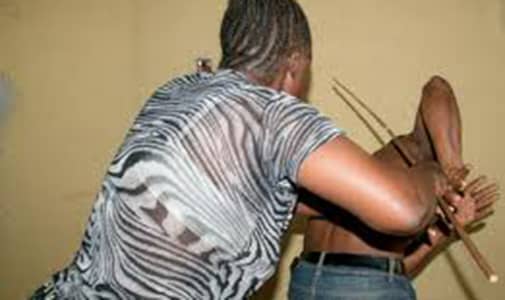For years, conversations around Gender-Based Violence (GBV) have largely centered on women and girls, yet behind that narrative lies another silent struggle.
The pain of men who suffer in silence. In a society where male identity is tied to strength and control, many men find it nearly impossible to speak out, fearing shame or being dismissed as weak.
Across Zambia, growing numbers of men are coming forward with stories of emotional, physical, and psychological abuse, often met with disbelief or ridicule.
Police spokesperson, Rae Hamoonga says looking at the previously released reports, women still account for the majority of reported GBV cases, male victims are steadily rising.
“You can see how the numbers of male victims are few compared to female and child victims because many times men do not report when they are abused, giving a clearer and more accurate picture,” said Mr Hamoonga.
This notion reveals a hidden side of GBV, one that challenges stereotypes and calls for a broader understanding of what it means to be a victim.Reports of abuse against boys and men continue to surface, many at the hands of the opposite gender.
The authorities and stakeholders seem to remain silent. What could be the reasons behind the silence?Boy Child Advocate Zambia Director Secretary Taurai Zakayo calls for,Equal enforcement of GBV laws regardless of the victim’s gender.
“Legal reforms that explicitly protects boys and men,” said Mr Taurai.
He adds that all sex offences should be non-bailable, regardless of the perpetrator’s gender.This silence perpetuates stigma, denies justice, and undermines the very principles of equality and human dignity.
The question is has there been enough sensitization?Former UNZA lecturer Lyford Sakala says breaking the stigma begins with awareness and education.
“Community leaders, churches, and NGOs should include men in GBV sensitization programs,” said Mr. Sakala.
Mr. Sakala says open dialogue can help victims find safe spaces to report and heal.Gender rights advocate Mwila Phiri notes that this silence from men and young boys is dangerous.
“GBV is not about gender, it’s about power and control,” Phiri explains.
“When we ignore men who are abused, we allow the cycle of violence to continue unchecked. Both men and women deserve protection and justice.”
He adds that the fight against GBV must go beyond gender labels. It must recognize that pain has no gender that behind closed doors, anyone can become a victim.
Authored by Nandipa Tembo

